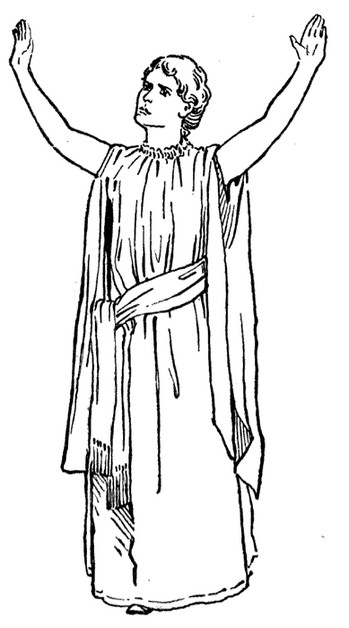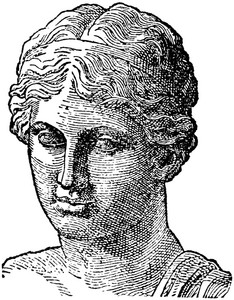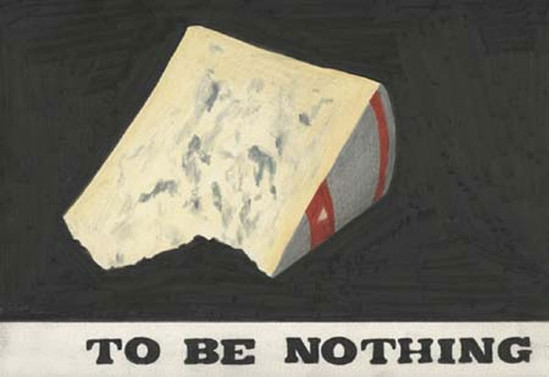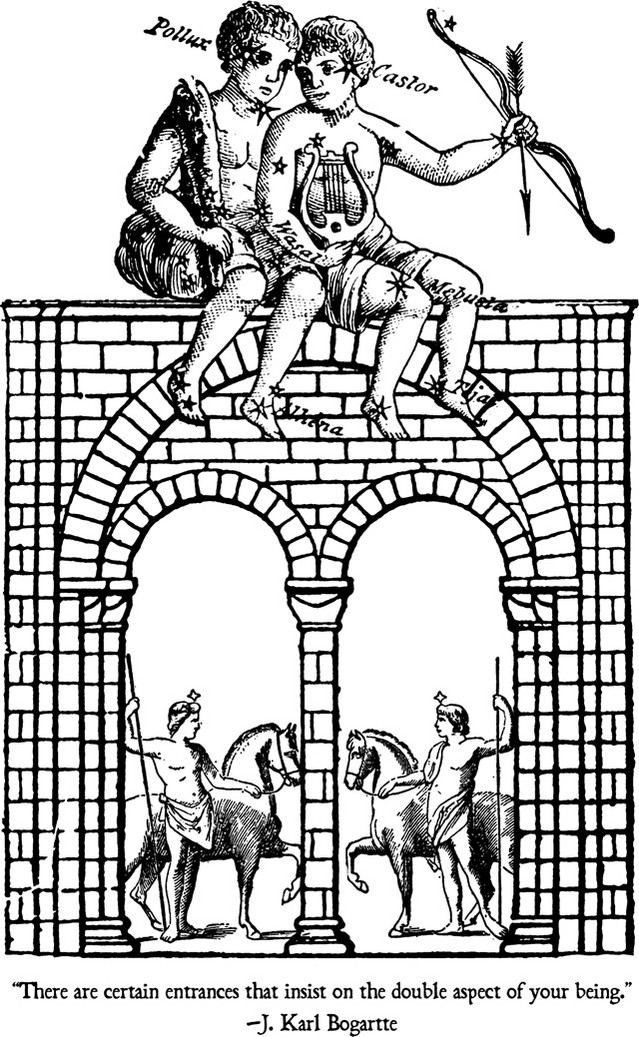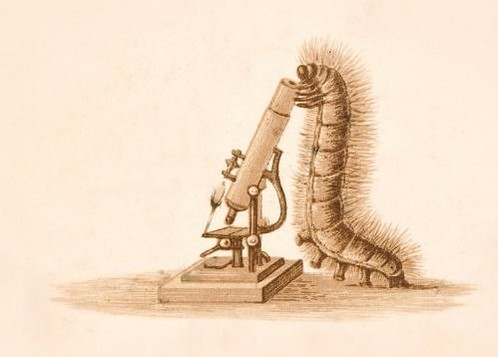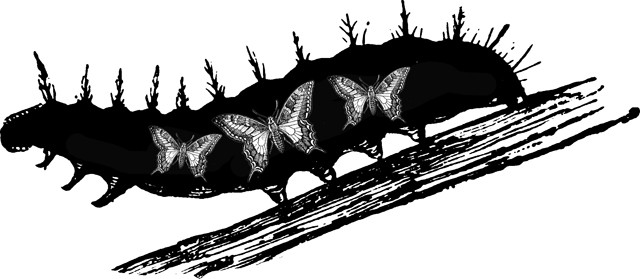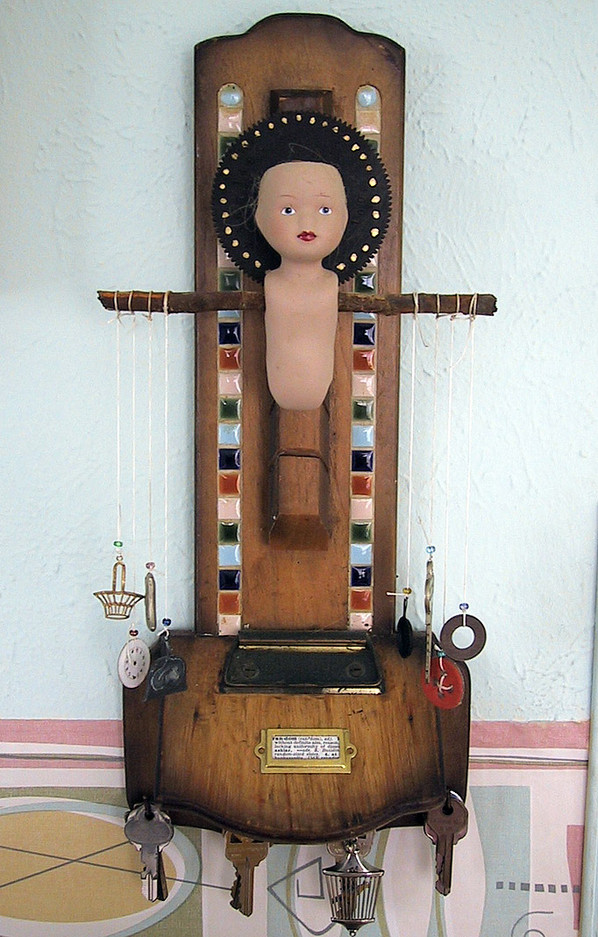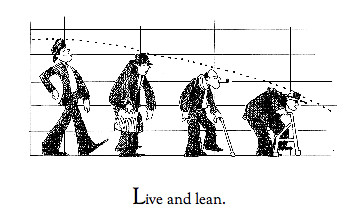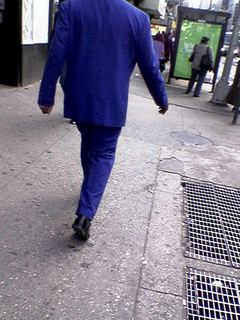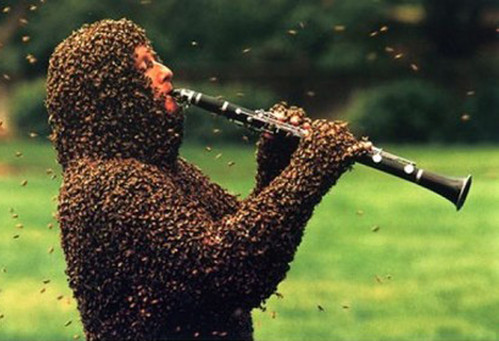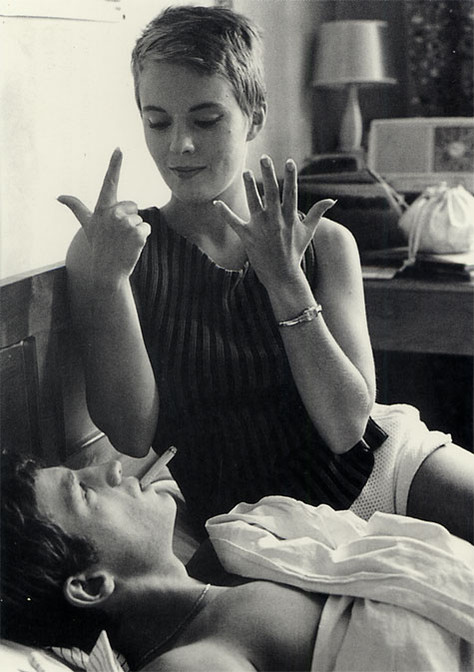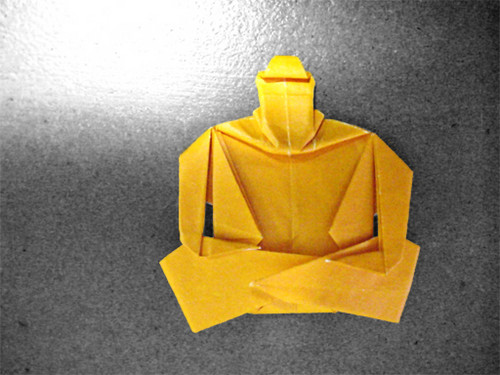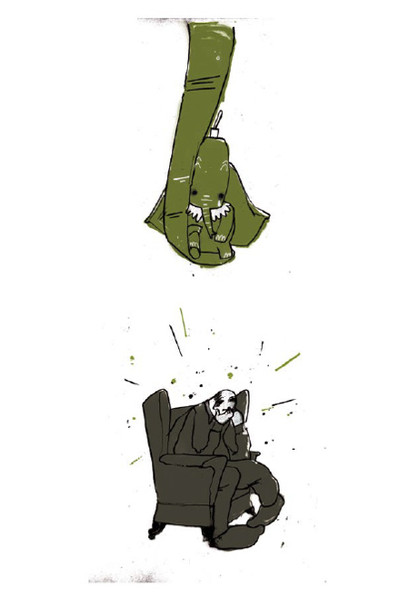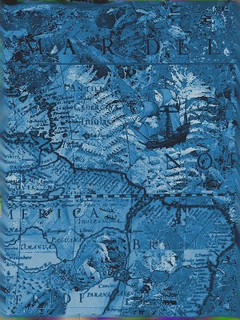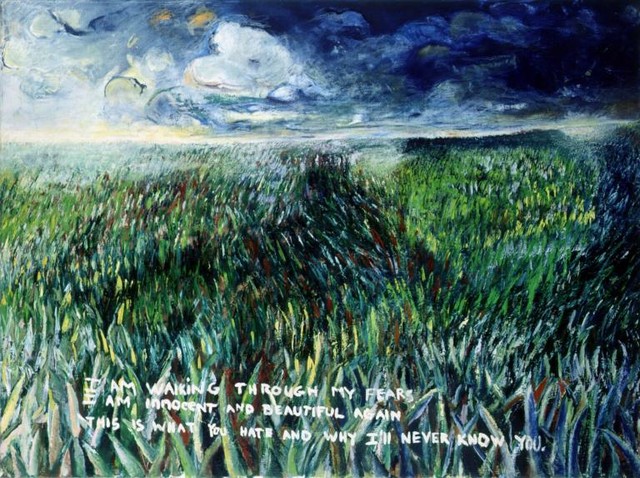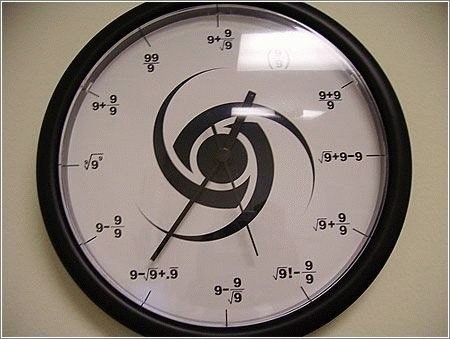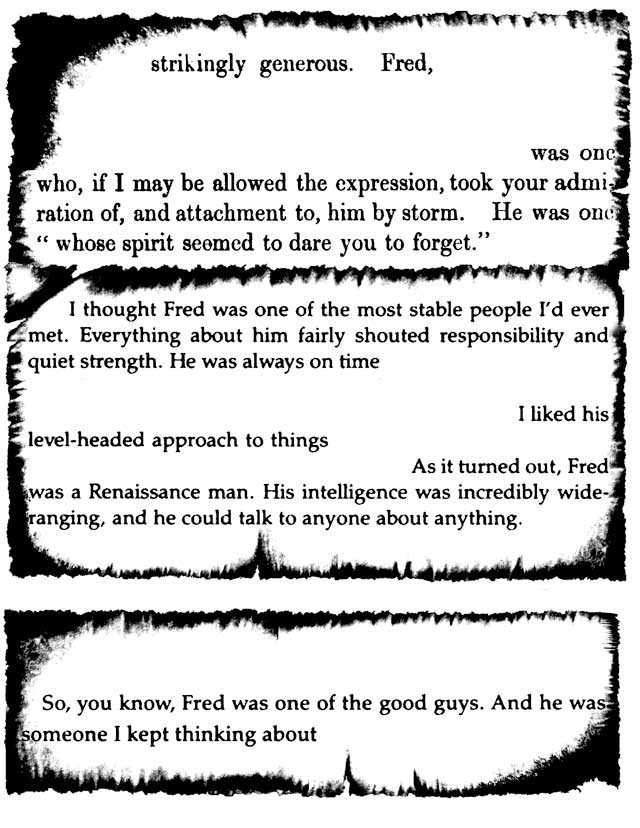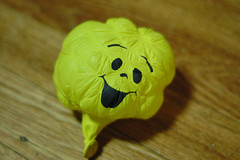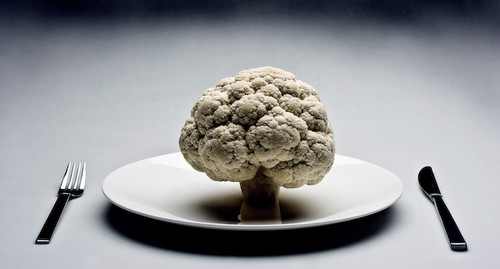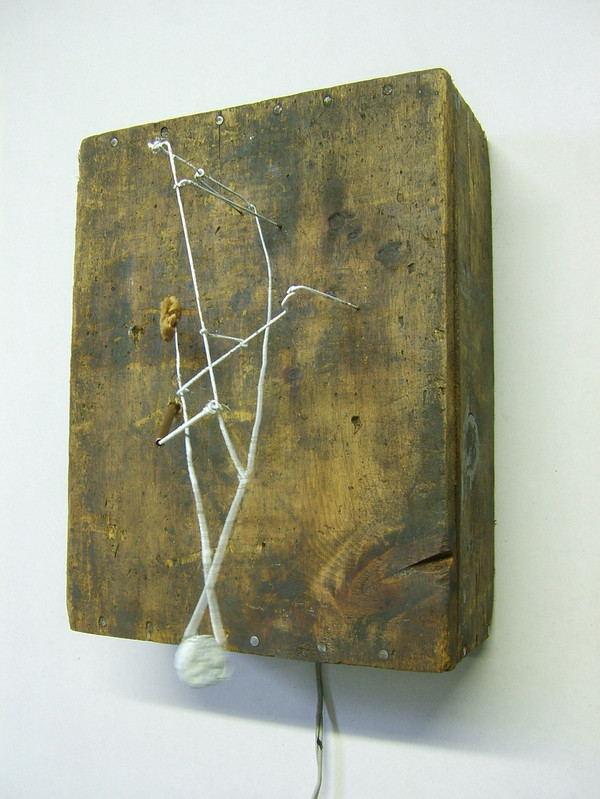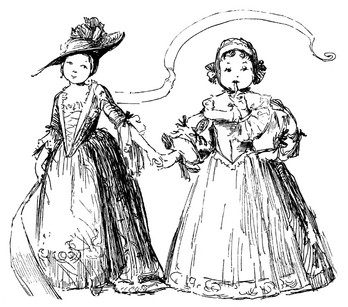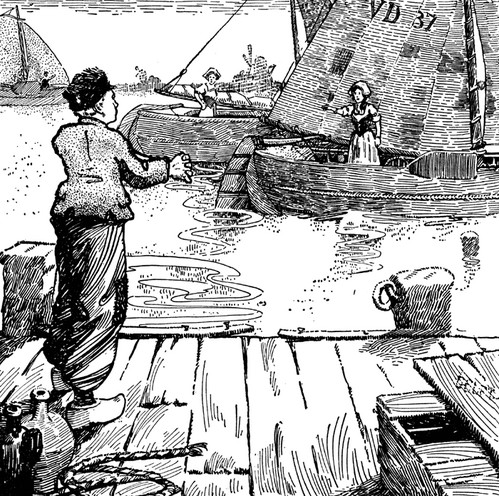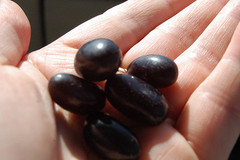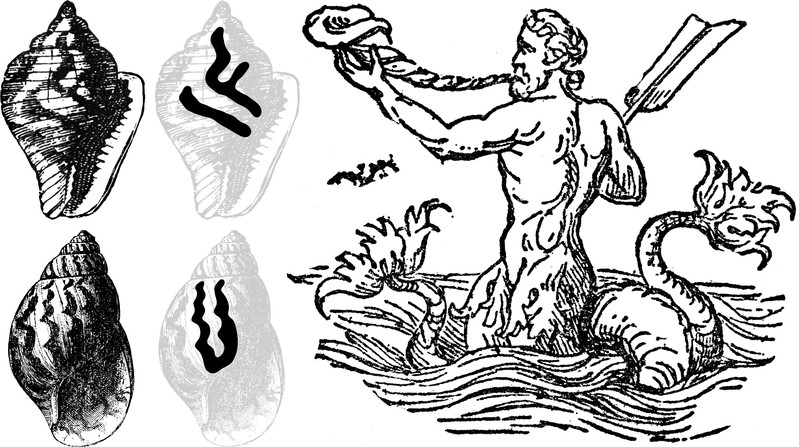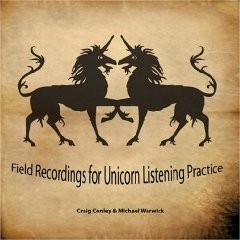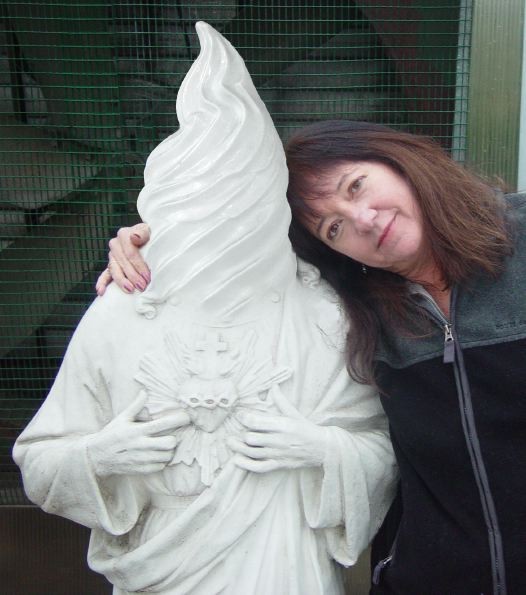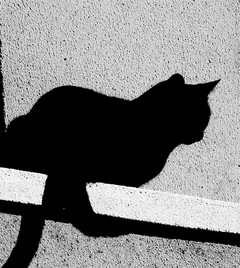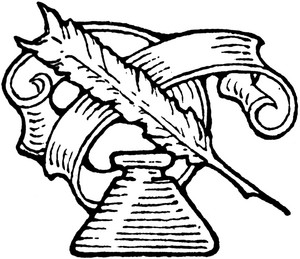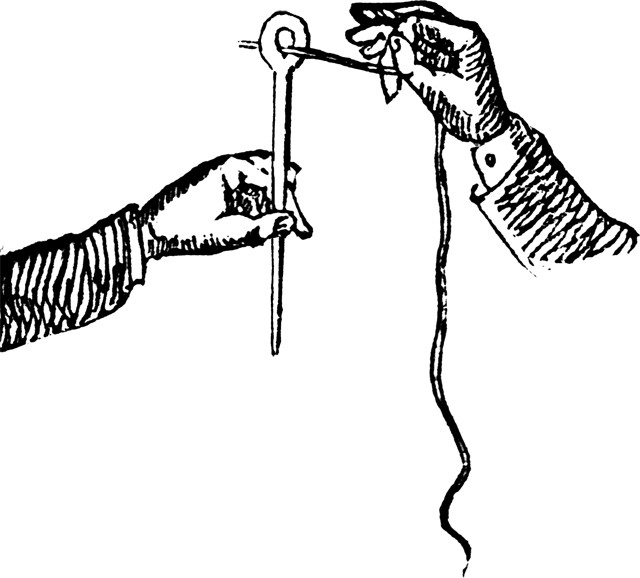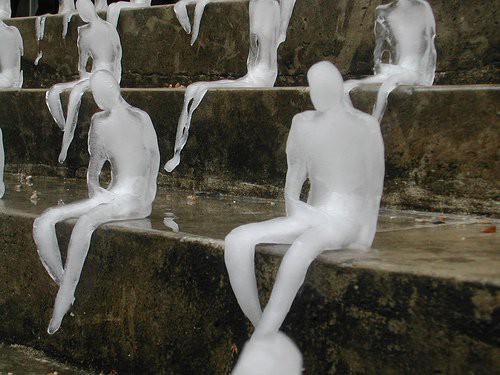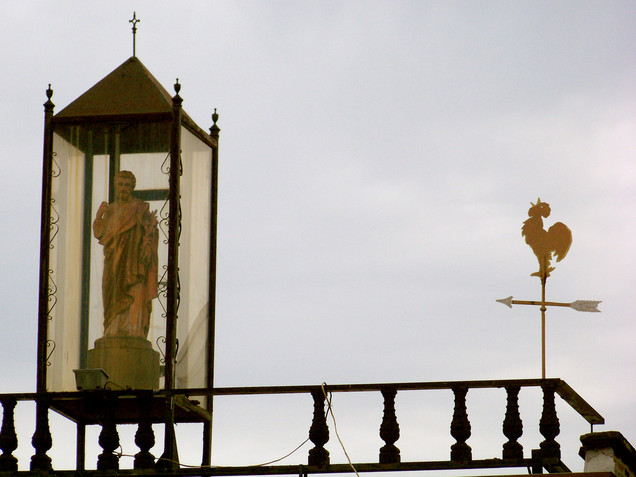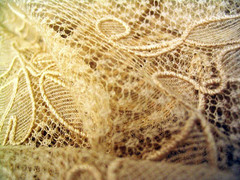
 |
"His antlers were like barren boughs." —Punch (issue uncertain)
|

 |
The door of Quincy’s office was orange and his sofa was dark gray. Some of us in Weede’s group had doors of the same color but sofas of a different color. Some had identical sofas but different doors. Weede himself was the only one who had a red sofa. Weede and Ted Warburton were the only ones with black doors. But Mars Tyler’s sofa was ecru, a shade lighter than Grove Palmer’s door. I had all this down on paper. On slow afternoons I used to study it, trying to find a pattern. I thought there might be a subtle color scheme designed by management and based on a man’s salary, ability, and prospects for advancement or decline. Why did no two people have identical sofas and doors? Why was Ted Warburton allowed to have a black door when the only other black door belonged to Weede Denney? Why was Reeves Chubb the only one with a primrose sofa? Why was Paul Joyner’s perfectly good maroon sofa replaced by a royal blue one? Why was my sofa the same color as Weede’s door? There were others who felt as I did.
—Don DeLillo, Americana, 1971.
 |
* Though printed in black and white, great literature is bursting with vibrant colour. In this rebus-style puzzle, color words and parts of words have been replaced with colored boxes. Try to guess the exact hue of each. Roll your mouse over the colored boxes to reveal the missing words. Click the colored boxes to learn more about each hue. Special thanks to Paul Dean for his colorful research.
|
|

 |
|
|
 |
 |
From our outpost at Blogspot: [Is poetry holographic? Like a hologram, can a surviving fragment of
an ancient poem unfold the original meaning in its entirety? We like
to think so.]
Here's Sappho's take on magic words:
Although they are
Only breath, words
which I command
are immortal
(translated by Mary Barnard) |


 |
From Prof. Oddfellow's sketchbook:
 |
Printed collections of Forgotten Wisdom diagrams are available: Volume I from Mindful Greetings and Volumes II, III and IV from Amazon. Selected posters are also available via Zazzle. |
|


 |
The sun had gone, the western ranges faded in chill purple mist, but the western sky still burned with ragged bands of orange. It was October.
—Thomas Wolfe, Look Homeward, Angel, 1929.
 |
* Though printed in black and white, great literature is bursting with vibrant colour. In this rebus-style puzzle, color words and parts of words have been replaced with colored boxes. Try to guess the exact hue of each. Roll your mouse over the colored boxes to reveal the missing words. Click the colored boxes to learn more about each hue. Special thanks to Paul Dean for his colorful research.
|
|


 |
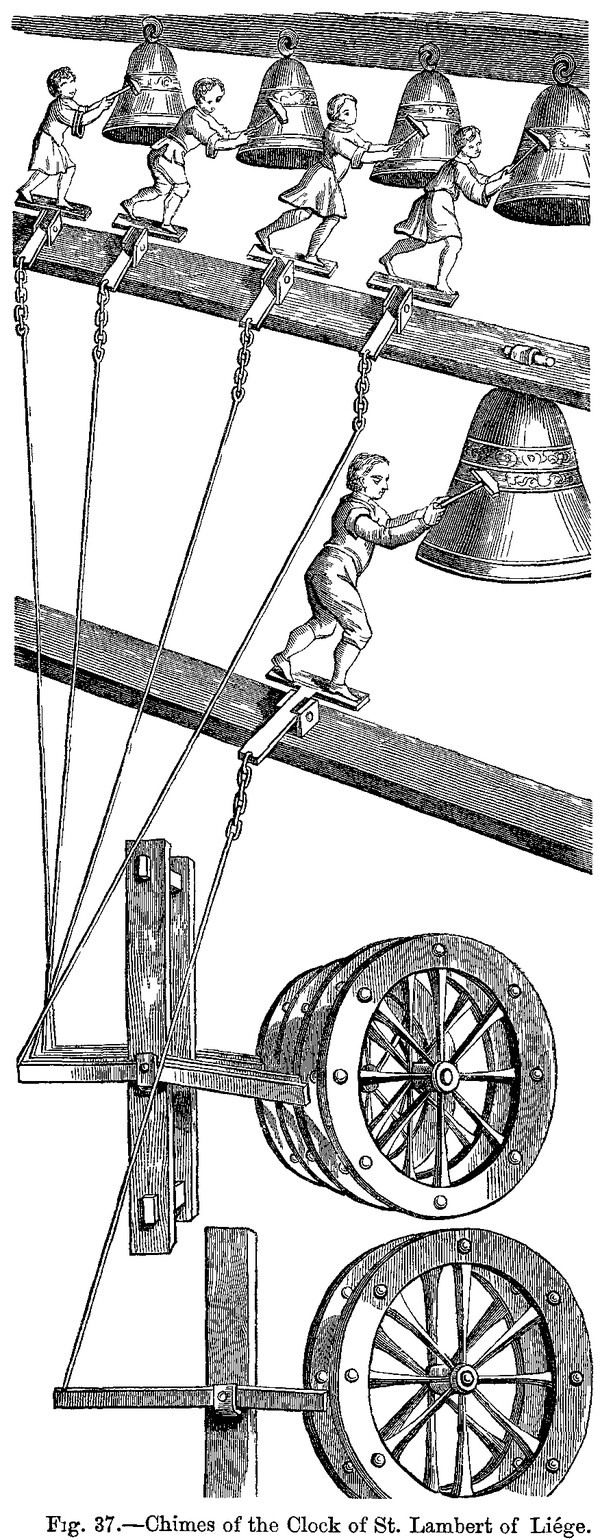
Illustration from Manners, Custom and Dress During the Middle Ages and During the Renaissance Period, by Paul Lacroix.
|


 |
Saint Higgledy-Piggledy
Patron of Randomness.
 |
| Who is your favorite imaginary saint? Do share! |
|


 |
The man wore a purple suit, a Panama hat over his shiny, slicked- down hair. He walked splay- footed, soundlessly.
The girl wore a green hat and a short skirt and sheer stockings, four- and- a- half inch French heels. She smelled of Midnight Narcissus.
—Raymond Chandler, "Pickup on Noon Street," from The Simple Art of Murder, 1950.
 |
* Though printed in black and white, great literature is bursting with vibrant colour. In this rebus-style puzzle, color words and parts of words have been replaced with colored boxes. Try to guess the exact hue of each. Roll your mouse over the colored boxes to reveal the missing words. Click the colored boxes to learn more about each hue. Special thanks to Paul Dean for his colorful research.
|
|


 |
 |
 | Dedicated to the people of the Lower Peninsula of Michigan — an inspiration to us all. (This parody was sparked by Jonathan Caws-Elwitt.)
|
|
|


 |
A collaged story we assembled for a singular June and henceforth dedicate to all the Junes of the world. Click on the thumbnails below to view an enlarged version in a new window. |




 |
Where is the road?" some one shouted.
"On the blueprint, of course. . . . You’ve got it all in black and white.”
—Thomas Wolfe, Look Homeward, Angel, 1929.
 |
* Though printed in black and white, great literature is bursting with vibrant colour. In this rebus-style puzzle, color words and parts of words have been replaced with colored boxes. Try to guess the exact hue of each. Roll your mouse over the colored boxes to reveal the missing words. Click the colored boxes to learn more about each hue. Special thanks to Paul Dean for his colorful research.
|
|


 |
Is it nine o'clock already?
|

 |
|
|
 |
 |
Here's a collage we assembled for a singular Fred and henceforth dedicate to all
the Freds of the world. |

 |
DEVICE: ‘Tis the Mode to express our fancie upon every occasion. . . . Shall I decipher my Colours to you now? Here is Azure and Peach: Azure is constant, and Peach is love; which signifies my constant Affection.
SISTER: This is very pretty.
DEVICE: Oh, it saves the trouble of writing. . . . [Y]our yellow is joy, because. . . .
LADY: Why, yellow, Sir, is Jealous.
DEVICE: No, your Lemon colour, a pale kind of yellow, is Jealous; your yellow is perfect joy. Your white is Death, your milke white innocence, your black mourning, your orange spitefull, your flesh colour lascivious, your maides blush envied, your red is defiance, your gold is avaritious, your straw plenty, your greene hope, your sea greene inconstant, your violet religious, your willow forsaken.
—James Shirley, ridiculing Device’s ribbons in Captain Underwit, early 1640s; quoted in Fashion and Fiction: Dress in Art and Literature in Stuart England by Aileen Ribeiro, 2005.
 |
* Though printed in black and white, great literature is bursting with vibrant colour. In this rebus-style puzzle, color words and parts of words have been replaced with colored boxes. Try to guess the exact hue of each. Roll your mouse over the colored boxes to reveal the missing words. Click the colored boxes to learn more about each hue. Special thanks to Paul Dean for his colorful research.
|
|

 |
|
|
 |
 |
A sea of shining white mist was in the valley, with glinting golden rays striking athwart it from the great cresset of the sinking moon; here and there the long, dark, horizontal line of a distant mountain’s summit rose above the vaporous shimmer, like a dreary, sombre island in the midst of enchanted waters. Her large, dreamy eyes, so wild and yet so gentle, gazed out through the laurel leaves upon the floating gilded flakes of light, as in the deep coverts of the mountain, where the fulvous- tinted deer were lying, other eyes, as wild and as gentle, dreamily watched the vanishing moon. Overhead, the filmy, lace- like clouds, fretting the blue heavens, were tinged with a faint rose. Through the trees she caught a glimpse of the red sky of dawn, and the glister of a great lucent, tremulous star.
—Charles Egbert Craddock (Mary Noailles Murfree) (1850–1922), "The ‘Harnt’ that Walks Chilhowee," from In the Tennesee Mountains, 1884.
 |
* Though printed in black and white, great literature is bursting with vibrant colour. In this rebus-style puzzle, color words and parts of words have been replaced with colored boxes. Try to guess the exact hue of each. Roll your mouse over the colored boxes to reveal the missing words. Click the colored boxes to learn more about each hue. Special thanks to Paul Dean for his colorful research.
|
|


 |
 |
 | Dedicated to the people of the Lower Peninsula of Michigan — an inspiration to us all. (This parody was sparked by Jonathan Caws-Elwitt.)
|
|
|


 |
Piecing together the secret of wonder-working . . .
 |
* The most profound secrets lie not wholly in knowledge, said the poet. They lurk invisible in that vitalizing spark, intangible, yet as evident as the lightning—the seeker's soul. Solitary digging for facts can reward one with great discoveries, but true secrets are not discovered—they are shared, passed on in confidence from one to another. The genuine seeker listens attentively. No secret can be transcribed, save in code, lest it—by definition—cease to be. This Book of Whispers collects and encodes more than one hundred of humankind's most cherished secrets. To be privy to the topics alone is a supreme achievement, as each contains and nurtures the seed of its hidden truth. As possessor and thereby guardian of this knowledge, may you summon the courage to honor its secrets and to bequeath it to one worthy. |
|


 |
A collaged story we assembled for a singular Donna and henceforth dedicate to all the Donnas of the world. Click on the thumbnails below to view an enlarged version in a new window. |


 |
What's the opposite of "bon voyage"? In other words, what would the people standing on the ocean liner call down to those staying ashore? Would it be "joyeuse inertie"?
|

 |
GEORGE BURNS: Going into the Pantages Theatre, there’s Gracie and Susan, and Harpo and myself. And he loved black jellybeans. He couldn’t get any black jellybeans, and all of a sudden there’s a little candy store next to the theatre. It’s during the war. All of a sudden he sees this candy store, and in the window there’s black jellybeans. He went in and he says, ‘How many black jellybeans have you got?’ The guy says, ‘Well, I got an order today, I paid thirty dollars for the black jellybeans.’ Harpo says, ‘I’ll give you thirty- five dollars for all the black jellybeans.’ Have you any idea how many jellybeans you can buy for thirty- five dollars?
Well, Gracie carried a bag of jellybeans, and Susan carried a bag, ‘cause we’re going into the theatre, and the little candy store would be closed when we left. And we couldn’t walk down to where the car was or we’d have missed the beginning of the picture. So the four of us are carrying about twenty- five pounds of black jellybeans into the theatre. But . . . before we went out, he also bought some colored jellybeans — ten cents’ worth of white, red, and pink jellybeans. That is, if we wanted a jellybean, he’d give us the colored ones because he didn’t want anyone to touch the black ones!
GROUCHO: I don’t blame him.
—from Hello, I Must be Going: Groucho and His Friends, by Charlotte Chandler, 1978.
 |
* Though printed in black and white, great literature is bursting with vibrant colour. In this rebus-style puzzle, color words and parts of words have been replaced with colored boxes. Try to guess the exact hue of each. Roll your mouse over the colored boxes to reveal the missing words. Click the colored boxes to learn more about each hue. Special thanks to Paul Dean for his colorful research.
|
|

 |
|
|
 |
 |
[This posting is in honor of Wilfried at Crystalpunk.) It is poetically said that when one raises a shell to the ear, one hears the ocean. Could it also be said that when one raises a shell to the eye, one reads poetry? In his masterpiece Doctor Faustus, Thomas Mann holds a magnifying glass to the "indecipherable hieroglyphics on the shells of certain mussels" and conchs, questioning whether Mother Nature expresses herself in an organized, written code, and whether ornament can ultimately be distinguished from meaning. Mann describes the calligraphy on a shell that practically begs to be understood: "The characters, as if drawn with a brush, blended into purely decorative lines toward the edge, but over large sections of the curved surface their meticulous complexity gave every appearance of intending to communicate something." The shell's calligraphy bears a strong resemblance to "early Oriental scripts, much like the stroke of Old Aramaic." But how is one to get to the bottom of such symbols? Mann admits that "They elude our understanding and, it pains me to say, probably always will." Yet this elusion need not be a source of discouragement. Mann explains that ornament and meaning are like conjoined twins: "When I say they 'elude' us, that is really only the opposite of 'reveal,' for the idea that nature has painted this code, for which we lack the key, purely for ornament's sake on the shell of one of her creatures--no one can convince me of that. Ornament and meaning have always run side by side, and the ancient scripts served simultaneously for decoration and communication. Let no one tell me nothing is being communicated here! For the message to be inaccessible, and for one to immerse oneself in that contradiction--that also has its pleasure." In other words, the shell calligraphy communicates a profound mystery, pregnant with meaning and delightful to behold. Mann admits that, "were this really a written code, nature would surely have to command her own self-generated, organized language," adding that nature's fundamental illiteracy is "precisely what makes her eerie." Mann's allusion to "early Oriental scripts" reminds us of the lost "shell" style of calligraphy discovered in Shang culture artifacts (14th - 11th centuries BCE). That ancient system of writing, more stylized than the early picture words, was brushed onto shells in vermilion ink. (For a full discussion of shell-style calligraphy, see Chinese Brushwork in Calligraphy and Painting by Kwo Da-Wei, 1990.) In our collage below, we imagine King Triton conjuring the Platonic ideals of shell calligraphy.
|

 |
SONG: Super-Connected
ARTIST: Belly
ORIGINAL LYRIC:
Are there heart strings connected
To the wings you've got slapped on your back?
Better climb in the window cause I'm closing the door.
Now I'm spinning on a dime.
ADJUSTED FOR INFLATION:
Did Groucho inspire
Your distinctive moustache?
Climb up the barber pole, don't bat a lash.
Now I'm banking on the cash.
 |
| * Payphones used to take dimes, but now they take quarters. Isn't
it time to update song lyrics to reflect the realities of
inflation? Alas, it's vastly easier to rhyme the word "dime" than
the word "quarter," but here at Inflationary Lyrics Headquarters we
have risen to the challenge. Please join the fun and share your
own inflationary lyrics, with both the "before" and "after" versions! |
|

 |
From A Surrealist Dictionary by J. Karl Bogartte: SWIMMING POOL: A kind of mist secreted by pyramids when fending off an attack of vicious glow-worms.
|


 |
Piecing together the secret of the white buffalo . . .
 |
* The most profound secrets lie not wholly in knowledge, said the poet. They lurk invisible in that vitalizing spark, intangible, yet as evident as the lightning—the seeker's soul. Solitary digging for facts can reward one with great discoveries, but true secrets are not discovered—they are shared, passed on in confidence from one to another. The genuine seeker listens attentively. No secret can be transcribed, save in code, lest it—by definition—cease to be. This Book of Whispers collects and encodes more than one hundred of humankind's most cherished secrets. To be privy to the topics alone is a supreme achievement, as each contains and nurtures the seed of its hidden truth. As possessor and thereby guardian of this knowledge, may you summon the courage to honor its secrets and to bequeath it to one worthy. |
|

 |
|
|
 |
 |
Green was the maiden, green, green! / Green her eyes were, green her hair. . . . / Through the green air she came. / (The whole earth turned green for her.) . . . / Over the green sea she came. / (And even the sky turned green then.)
—Juan Ramon Jimenez (1881-1959), "Green," translated by J.B. Trend. From Nine Centuries of Spanish Literature, edited by Seymour Resnick and Jeanne Pasmantier, Dover, 1994.
 |
* Though printed in black and white, great literature is bursting with vibrant colour. In this rebus-style puzzle, color words and parts of words have been replaced with colored boxes. Try to guess the exact hue of each. Roll your mouse over the colored boxes to reveal the missing words. Click the colored boxes to learn more about each hue. Special thanks to Paul Dean for his colorful research.
|
|


 |
 |
 | Dedicated to the people of the Lower Peninsula of Michigan — an inspiration to us all. (This parody was sparked by Jonathan Caws-Elwitt.)
|
|
|

 |
|
|
 |
 |
We're delighted to announce that our brand new guided audio tour of unicorns in the field is now available in fancy CD and budget MP3 formats at Amazon.com. TRACK 1 - Guided Tour of Unicorns in the Field (easy, narrated) Subtle nature sounds (birds, crickets, distant chimes, hoofbeats) offer practice sessions for those unable to easily access nature. TRACK 2 - Guided Meditational Listening (easy, narrated) Unicorn sounds within the ambience (birds, insects, snapping twigs, wind) signal the listener to go deeper into restful alertness. TRACK 3 - Field Practice Area 1 (advanced, nature only) Suitable for self-guided meditation, bedtime relaxation, and advanced deep listening practice. TRACK 4 - Field Practice Area 2 (advanced, nature only) Suitable for self-guided meditation, bedtime relaxation, and advanced deep listening practice. |

 |
Piecing together the secret of the whispering spring . . .
 |
* The most profound secrets lie not wholly in knowledge, said the poet. They lurk invisible in that vitalizing spark, intangible, yet as evident as the lightning—the seeker's soul. Solitary digging for facts can reward one with great discoveries, but true secrets are not discovered—they are shared, passed on in confidence from one to another. The genuine seeker listens attentively. No secret can be transcribed, save in code, lest it—by definition—cease to be. This Book of Whispers collects and encodes more than one hundred of humankind's most cherished secrets. To be privy to the topics alone is a supreme achievement, as each contains and nurtures the seed of its hidden truth. As possessor and thereby guardian of this knowledge, may you summon the courage to honor its secrets and to bequeath it to one worthy. |
|


 |
SONG: The World Has Its Shine
ARTIST: Cobra Starship
ORIGINAL LYRIC:
The world has its shine
But I would drop it on a dime for you
ADJUSTED FOR INFLATION:
The world has its flash
But I would drop it on some cash for you
 |
| * Payphones used to take dimes, but now they take quarters. Isn't
it time to update song lyrics to reflect the realities of
inflation? Alas, it's vastly easier to rhyme the word "dime" than
the word "quarter," but here at Inflationary Lyrics Headquarters we
have risen to the challenge. Please join the fun and share your
own inflationary lyrics, with both the "before" and "after" versions! |
|

 |
A collaged story we assembled for a singular Rana and henceforth dedicate to all the Ranas of the world. Click on the thumbnails below to view an enlarged version in a new window. |


 |
These are the kind of things that I wish to have — engraved amethysts, rosaries of black, amber and gold, blue cloth for a camora, black cloth for a mantle, such as shall be without a rival in the world, even if it costs ten ducats a yard; as long as it is of real excellence, never mind! If it is only as good as those which I see other people wear, I had rather be without it!
—seventeen-year-old Marchioness of Mantua, April, 1491. From a letter to Girolamo Zigliolo, about to leave for France. Quoted and translated from the Italian by Evelyn Welch in Shopping in the Renaissance: Consumer Cultures in Italy, 1400—1600, 2005.
 |
* Though printed in black and white, great literature is bursting with vibrant colour. In this rebus-style puzzle, color words and parts of words have been replaced with colored boxes. Try to guess the exact hue of each. Roll your mouse over the colored boxes to reveal the missing words. Click the colored boxes to learn more about each hue. Special thanks to Paul Dean for his colorful research.
|
|

 |
|
|
 |
 |
SIGH[from our Magic Words blog] The music of a sigh, the magician of a momentary joy.
—F.G., "British Poetry: the Drama,” The British Controversialist and Literary Magazine (1862) The most profound meaning of a sigh is invariably absent from dictionaries. A sigh is an invocation. It is an audible expression of a deep yearning for someone or something beyond one’s reach. A sigh is an aspiration in both senses of the word: an exhalation of breath and a heartfelt wish. A sigh typically trails off into a deep silence, just as in meditation the intention carried by a sutra is allowed to germinate in the wordless void. In Irish lore we find the fairy name sigh or sidh (pronounced "shee”), originating from the blast of wind sidhe that carries the vital spirit (comparable to the magician siddha and magic siddhi of Hindu belief).* For Laplander shamen, a profound sigh seems to carry across the threshold to the otherworld to signal an awakening of oracular powers: After some preparatory ceremonies, the magician falls senseless and motionless, as if the soul had really abandoned the body. After a lapse of twenty-four hours, the soul returning, the apparently inanimate body awakens as if out of the profound sleep, and utters a deep-drawn sigh, as if emerging from death to life. Thus brought to himself, the magician answers questions put to him, and, to remove all doubt in regard to the character of his responses, he names and describes the places where he has been, with minute circumstances well known to the interrogator.
—John Campbell Colquhoun, An History of Magic, Witchcraft, and Animal Magnetism (1851) In "Ej Haj,” the Hungarian fairy tale by Zsuzsanna Palkó, the titular magician’s name not only sounds like but also means "a sigh.”† The word haj is possibly related to Xai, a Vogul shaman’s "invocation to the supernatural at ritual ceremonies.”† In the tale "János Teddneki,” the King of Devils is named "Hájháj,”† like a double sigh. A double sigh conjures a magician in this exemplary passage: A deep sigh escaped his parched lips, and that sigh was echoed by another. He looked up, and standing beside him, in the hush of solemn midnight, he beheld Grimwald the Magician!
—E.B. Clarke, "A Legend of Charlemagne,” The American Monthly Magazine (1837) A sigh accomplishes a magical effect in this passage: Jack Starhouse could make [cats] dance wild dances, leaping about upon their hind legs and casting themselves from side to side. This he did by strange sighs and whistlings and hissings.
—Susanna Clarke, Jonathan Strange & Mr. Norrell (2004) Sometimes, an intricate incantation is expressed through sighs: He raised his arms, holding them out to her. ‘Kum [kunka] yali, kum buba tambe,’ and more magic words, said so quickly, they sounded like whispers and sighs. The young woman lifted one foot on the air. Then the other. She flew clumsily at first, with the child now held tightly in her arms. Then she felt the magic, the African mystery. Say she rose as free as a bird. As light as a feather.
—Virginia Hamilton, The People Could Fly (1985) In the following passage, a sigh surrounds a magician like a spectral aura as he explains the limits of his art: The shadow of a sigh penetrated the wall. "I am a magician indeed, with knowledge of every spell yet devised, the sleight of runes, incantations, designs, exorcisms, talismans. I am Master Mathematician, the first since Phandaal, yet I can do nothing to your brain without destroying your intelligence, your personality, your soul—for I am no god. A god may will things to existence; I must rely on magic, the spells which vibrate and twist space.”
—Jack Vance, The Dying Earth (1982) * Abram Smythe Palmer, Folk-Etymology (1882) † Linda Degh, Folktales and Society (1989) [Special thanks to Gordon Meyer, for inspiration!]
|

 |
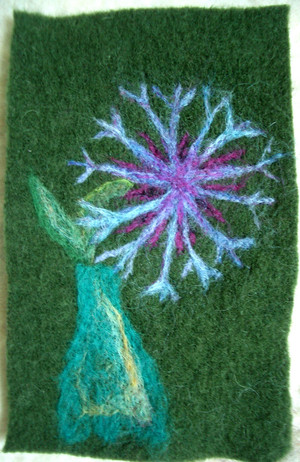
A felt Centaurea Montana, via HomeWork blog.
|


 |
Piecing together the secret of water . . .
 |
* The most profound secrets lie not wholly in knowledge, said the poet. They lurk invisible in that vitalizing spark, intangible, yet as evident as the lightning—the seeker's soul. Solitary digging for facts can reward one with great discoveries, but true secrets are not discovered—they are shared, passed on in confidence from one to another. The genuine seeker listens attentively. No secret can be transcribed, save in code, lest it—by definition—cease to be. This Book of Whispers collects and encodes more than one hundred of humankind's most cherished secrets. To be privy to the topics alone is a supreme achievement, as each contains and nurtures the seed of its hidden truth. As possessor and thereby guardian of this knowledge, may you summon the courage to honor its secrets and to bequeath it to one worthy. |
|




 |
 |
 | Dedicated to the people of the Lower Peninsula of Michigan — an inspiration to us all. (This parody was sparked by Jonathan Caws-Elwitt.)
|
|
|

 |
|
|
 |
 |
I dreamed of Lord Whimsy's elegant quill pen, its down-like barbs quavering between waggish quips. "Call me partisan," I recall him saying, "but I've always enjoyed the brief conversational pauses [semicolons] create. They also allow for a complexity and artistry in the text; without them, language seems to devolve into a series of hard, curt, declarative chirps." |

 |
A collaged story we assembled for a singular Norris and henceforth dedicate to all the Norrises of the world. Click on the thumbnails below to view an enlarged version in a new window. |

 |
Piecing together the secret of the wand . . .
 |
* The most profound secrets lie not wholly in knowledge, said the poet. They lurk invisible in that vitalizing spark, intangible, yet as evident as the lightning—the seeker's soul. Solitary digging for facts can reward one with great discoveries, but true secrets are not discovered—they are shared, passed on in confidence from one to another. The genuine seeker listens attentively. No secret can be transcribed, save in code, lest it—by definition—cease to be. This Book of Whispers collects and encodes more than one hundred of humankind's most cherished secrets. To be privy to the topics alone is a supreme achievement, as each contains and nurtures the seed of its hidden truth. As possessor and thereby guardian of this knowledge, may you summon the courage to honor its secrets and to bequeath it to one worthy. |
|


 |
| I Found a Penny Today, So Here's a Thought |
(permalink) |
 |
 |
 |
|

 |
|
|
 |
 |
Saint KaikiasPatron of the Northeasterly Winds.
- WELCOME, wild Northeaster!
- Shame it is to see
- Odes to every zephyr;
- Ne'er a verse to thee.
- Welcome, black Northeaster!
- O'er the German foam;
- O'er the Danish moorlands,
- From thy frozen home.
- Tired are we of summer,
- Tired of gaudy glare,
- Showers soft and steaming,
- Hot and breathless air.
- Tired of listless dreaming,
- Through the lazy day--
- Jovial wind of winter
- Turn us out to play!
- . . .
- Come, as came our fathers,
- Heralded by thee,
- Conquering from the eastward,
- Lords by land and sea.
- Come; and strong, within us
- Stir the Vikings' blood;
- Bracing brain and sinew;
- Blow, thou wind of God!
- —Charles Kingsley
 |
| Who is your favorite imaginary saint? Do share! |
|

 |
She was dressed in rich materials — satins, and lace, and silks — all of white. Her shoes were white. And she had a long white veil dependent from her hair, and she had bridal flowers in her hair, but her hair was white. . . . [Then] I saw that everything . . . which ought to be white, had been white long ago, and had lost its lustre, and was faded and yellow. I saw that the bride within the bridal dress had withered like the dress, and like the flowers.
—Charles Dickins, Great Expectations, 1861.
 |
* Though printed in black and white, great literature is bursting with vibrant colour. In this rebus-style puzzle, color words and parts of words have been replaced with colored boxes. Try to guess the exact hue of each. Roll your mouse over the colored boxes to reveal the missing words. Click the colored boxes to learn more about each hue. Special thanks to Paul Dean for his colorful research.
|
|

Page 0 of 4032


Original Content Copyright © 2026 by Craig Conley. All rights reserved.
|



